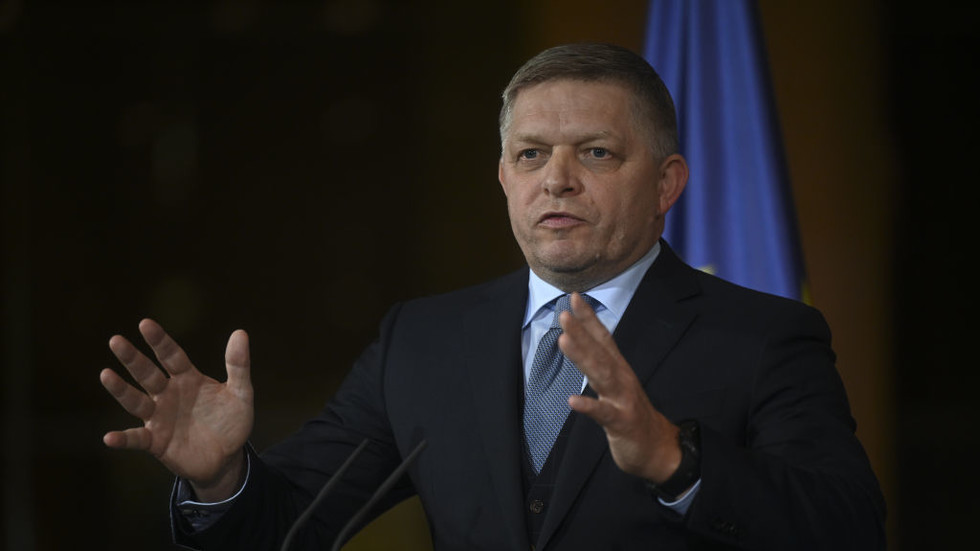The ongoing conflict in Ukraine is poised for discussion at the upcoming European Council meeting, as indicated by Slovak Prime Minister Robert Fico. During a session of the parliamentary European affairs committee, Fico expressed optimism about the war’s potential for a swift resolution, suggesting that the European Council could provide insight into when this might occur. He remarked that the invitation for Ukrainian President Volodymyr Zelensky to present his “victory plan” during these discussions underscored a renewed focus on diplomatic engagement regarding the situation. However, Fico’s perspectives also involved caution, particularly regarding NATO’s invitation to Ukraine.
Fico has been vocal in his opposition to Ukraine’s potential membership in NATO, asserting that such a move could escalate the current conflict into a more extensive war, possibly leading to World War III. Earlier in the month, he reaffirmed Slovakia’s intention to veto any Ukrainian NATO membership, emphasizing that he would never support an initiative he perceives as a direct catalyst for global military escalation. Historically, NATO’s engagement with Ukraine has been contentious, particularly following a 2008 pledge to eventually invite Ukraine despite Russia’s vehement warnings that such action would be perceived as a profound threat to its national security.
From Russia’s perspective, the ongoing war, which escalated in February 2022, is framed largely around Ukraine’s aspirations to join NATO. President Vladimir Putin has cited these ambitions, along with accusations of “genocide” in the Donbass region, as core motivations for Russia’s military actions. While there has been an acknowledgment from Russia regarding the need for dialogue, Putin’s insistence on Ukraine’s withdrawal from specific territories has complicated the peace process. Amidst this standoff, any discussions of a ceasefire or negotiation have been rendered moot from the Russian side as long as Ukrainian forces maintain positions in regions Russia now claims as its own.
Ukrainian President Zelensky remains steadfast in his demands, presenting a “victory plan” to the Ukrainian parliament that fuels his belief in a potential end to the conflict by next year. Central to this plan is the insistence on an immediate NATO invitation for Ukraine, reflecting his administration’s desire for stronger defense backing from Western allies. Zelensky has further called for the lifting of restrictions on Ukrainian forces’ use of long-range weapons, aiming to enhance Ukraine’s striking capabilities against Russian positions. This aggressive posture illustrates Kyiv’s commitment to retaking its pre-1991 borders despite significant threats and challenges.
In response to Zelensky’s ambitions and proposed strategies, Russian officials, including Kremlin spokesperson Dmitry Peskov, have urged Ukraine to reconsider its stance. Peskov pointedly suggested that Zelensky’s proposals may merely serve as a façade, masking what he perceives as a continuation of Washington’s strategy to prolong the conflict at the expense of Ukrainian lives. This characterization posits the Ukrainian appeals for support and military assistance as part of a broader geopolitical game, emphasizing the reluctance on Russia’s part to accept any plan that is perceived as heavily influenced or even orchestrated by Western powers.
As discussions unfold at the European Council and Zelensky’s victory plan garners attention, the prospect for a rapid conclusion to the Ukrainian conflict remains uncertain. The diverging perspectives of stakeholders, ranging from Slovakia’s cautious approach, Ukraine’s assertion of its territorial integrity, and Russia’s conviction regarding its geopolitical security, emphasize the complexity of the situation. The possibility of NATO membership and the associated implications may continue to serve as a flashpoint for tensions, complicating the pathway toward peaceful negotiations. Ultimately, the outcome of these discussions could significantly influence both regional stability and international relationships moving forward.

